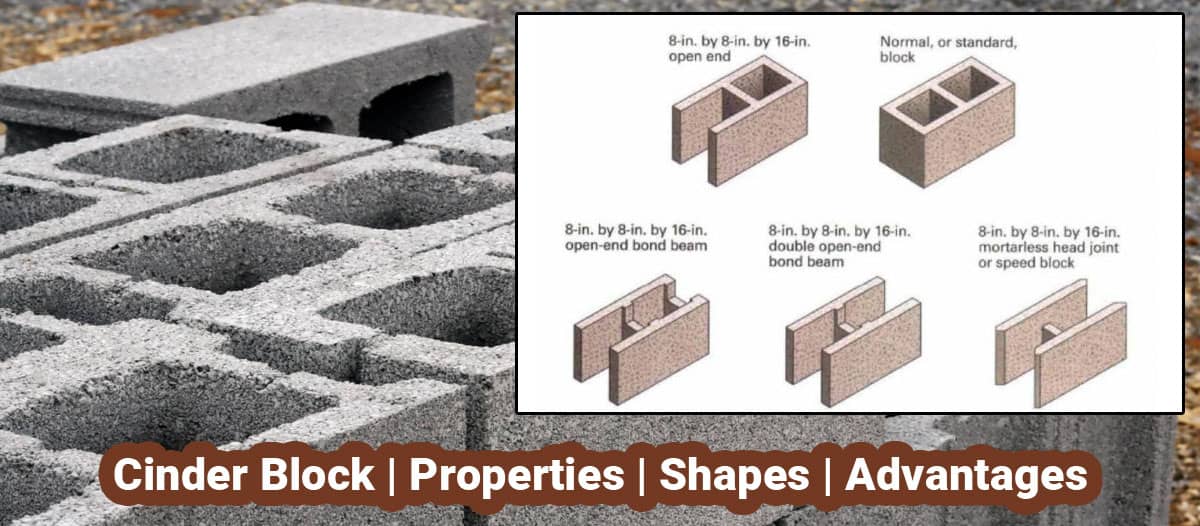Cinder Block Shapes and Its Advantages
What Is Cinder Block?
Cinder blocks are totally different from concrete blocks. Concrete and cinder blocks are made up of an equivalent basic components; however, there's a special key component for cinder blocks and created for various functions.
Cinder blocks also are made from concrete, however, the mixture includes coal ash. Concrete blocks lighter than cinder blocks.
The cinder and concrete blocks are created with open cells which will accept metallic reinforcement or extra cinder for greater resistance.

Concrete blocks are much stronger than cinder blocks. Some building codes explicitly require the utilization of cinder blocks in construction projects.
Cinder blocks are hollow rectangular structures, usually made up of concrete and coal cinder that are utilized in construction sites. Concrete blocks, on the opposite hand, are usually two-dimensional constructions made from steel, wood or cement.
Cinder Block Properties
- Typically, the concrete product is analogous to coal cinders.
- Much lighter compared to the latter due to the proportion of the combined
- It's not terribly robust, so it's generally avoided utilized in some places.
- They're very vulnerable to bending and buckling, and repairs are often terribly expensive, in order that they are avoided.
- They need become almost old-fashioned because they need not been manufactured within the factory for about fifty years now.
Characteristics
The concrete block is typically available purchasable in standard pieces of the oblong shape of 8 x 8 x 16 inches in dimension (approximately 20 x 20 40 cm).
Usually, they're about 3/8 of an in. (about 9 mm) but the required size because it's necessary to go away space for the appliance of the mortar mix.
The concrete block may have a solid or hollow core. The latter has cavities that reduce weight, but also offer less resistance.
Concrete blocks generally , also are referred to as concrete units for masonry (concrete masonry units or CMU in English) or masonry blocks.
Different Shapes of Cinder Blocks
There are differing types of cinder blocks which will be made. Cinder blocks are often made by building requirements or choices of the owners.
Common sorts of clinker block
- Standard Gray Cinder Blocks
- Concrete Deck Block
- Cap Concrete Block
- Standard Core Block
- Quikrete Concrete Deck Block
Wall Styles
- Standard size
- Half Blocks
- Strip
- Rounded Corners
- Articulated Beams
- Header
- Precious Stones
Advantages
Cinder blocks are a cheap material for works.
They are used for several reasons and wiped out different ways:
- No dressing work.
- Light in weight.
- Not much skill required.
- Structurally stronger than bricks.
- Thinner walls possible, hence giving more carpet area.
- Large in size, hence no. of joints are less. Saving in mortar.
- Better insulating against heat, sound & dampness.
- Needn't require plastering.
